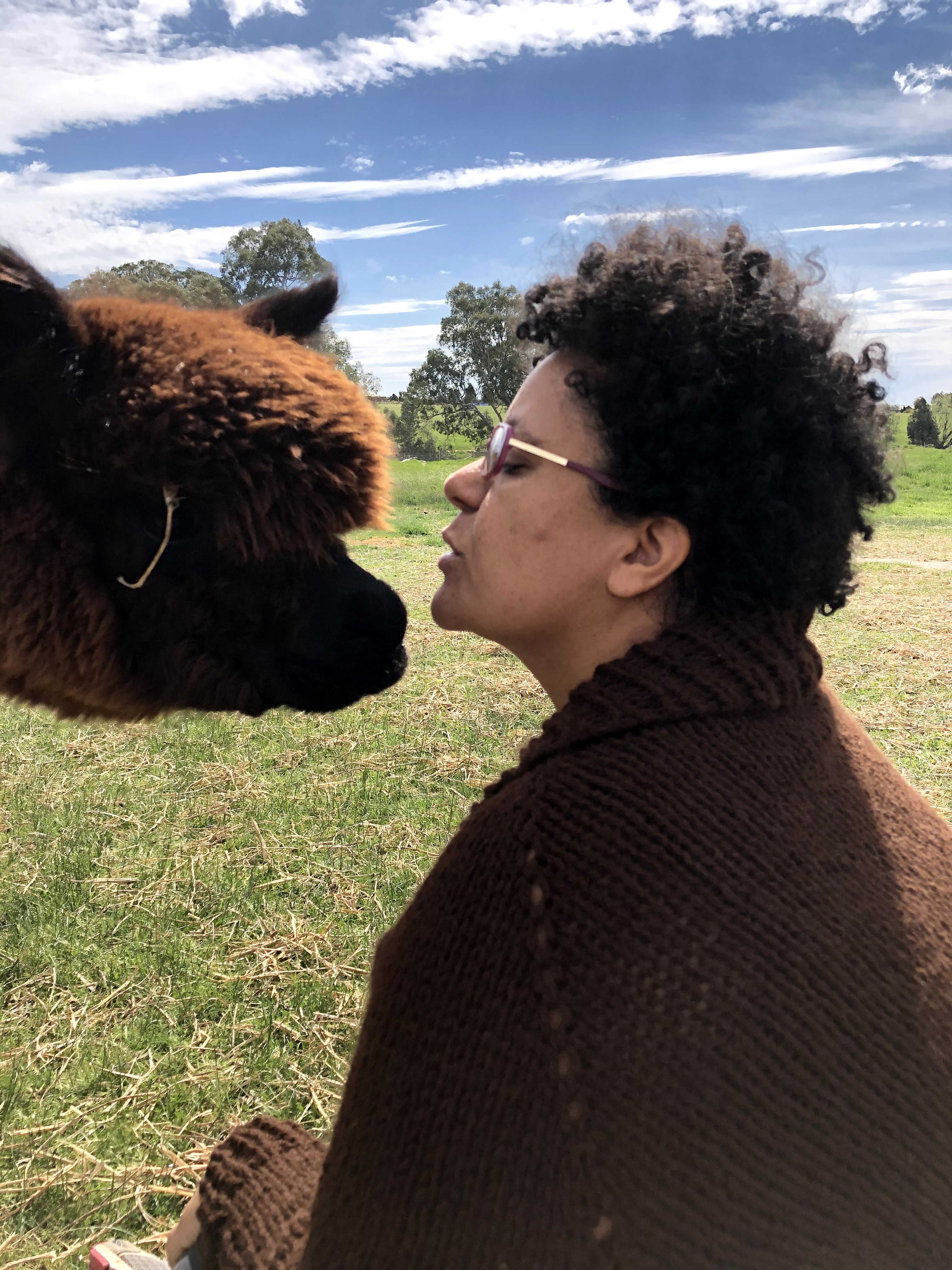You have to consistently show up for your alpacas
- Rita

- Feb 2, 2024
- 3 min read
Former city dwellers Jenna and Alex have transitioned to alpaca ownership and farming life without too much stress. The secret? Lots of preparation, research, learning and hands-on practice through volunteering at an alpaca farm.

Why did you want to have alpacas?
We were planning a move from Melbourne to the country. We bought a 10-acre farm to live and farm regeneratively. We started researching about productive animals that are light on the land and sustainable. Alpacas seemed to fit several criteria: they could provide manure to grow food for us, provide fleece for clothes, and help protect chickens and sheep against foxes. We realised alpacas were also great animals to enhance our general well-being and mental health, helping us have a sense of purpose and connection.
How many alpacas do you have? What are they like?
We have three girls. Daniela is the youngest at two years old. She’s never been pregnant and is curious and spritely. She has great guardian qualities, which she’s learning from Chanel. Chanel is five years old and is the leader. She is an elegant, experienced herd member with fantastic guarding abilities. She is the protector. Unlike Chanel, Kentucky is a sassy little lady, very moody, and wears her emotions on the outside. Kentucky is six. She is neither dominant nor submissive. She is a strong herd member but follows Chanel’s lead. All three of our girls have exquisite fleece. We are enjoying all the things that come with learning and growing along side our alpacas.
How much time do you spend looking after your alpacas? What does it involve?
Per day, I think we spend between 30 minutes to two hours outside in the paddock with the girls. There are also other chores associated with having alpacas. For example, we have to buy hay every few weeks, so we drive about 30 minutes to the feed store.
There are chores and regular husbandry needs that come along with owning alpacas but we very much enjoy all that’s required. Some days, if we’re both flat out with work, we just do a quick check, maybe 10-15 minutes… but that’s not a constant thing we like to do. When we are both away for a whole day we check gates and water before we leave.
What do you enjoy most about being an alpaca owner?
I love the constant learning. There is a need to consistently show up for them. If you want to stay connected and provide a safe and rewarding husbandry program, you need to put in the effort. I like being needed in that way. If we want high quality fleece, lovely quiet, healthy animals… then you “reap what you sow” so to speak, and that means putting in the time.
What do you enjoy the least about being an alpaca owner?
Nothing, from a practical sense. Alpacas are fairly low maintenance compared to other small ruminants or cattle. They are not comparable to a pet or a dog so there’s no point in thinking about it that way. I guess alpacas can be a bit more skittish than other farm animals but I think that’s what we love about them. They are quirky or aloof and have very individual personalities.
What has been the most difficult thing so far?
The most difficult thing has been trying not to stress too much that we’re not doing things correctly. We are trying to worry less about things you have no or little control over… like grass seeds, thunderstorms, neighbours' dogs… etc. I’m generally a pretty even-keel kind of person, but when it comes to the animals, I can get anxious for their well-being. Alex, my partner, is much calmer and puts things in perspective.
What advice would you give to prospective alpaca owners in Victoria?
Do the work at the beginning before you get them to educate yourself on their husbandry needs. You’ll save a lot of stress and money down the track. Large animal vets are not cheap, and it’s not good for alpacas to travel to vets all the time or have them come out. The connection you can create with your animals is priceless. Building that trust means you can identify problems much quicker because you’ll be physically closer to them. That’s the beauty of husbandry: touching and caring for them without being annoying.

What's next?
If you're eager to learn about alpacas, we encourage you to attend one of our workshops or contact us with any questions. We love sharing our knowledge with others.



